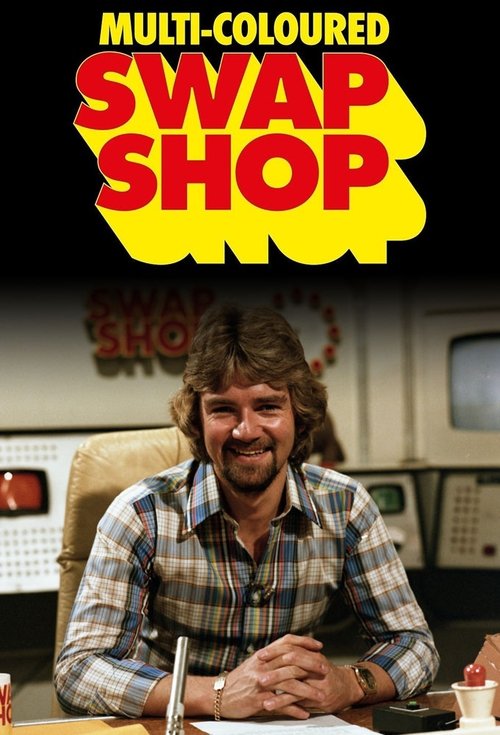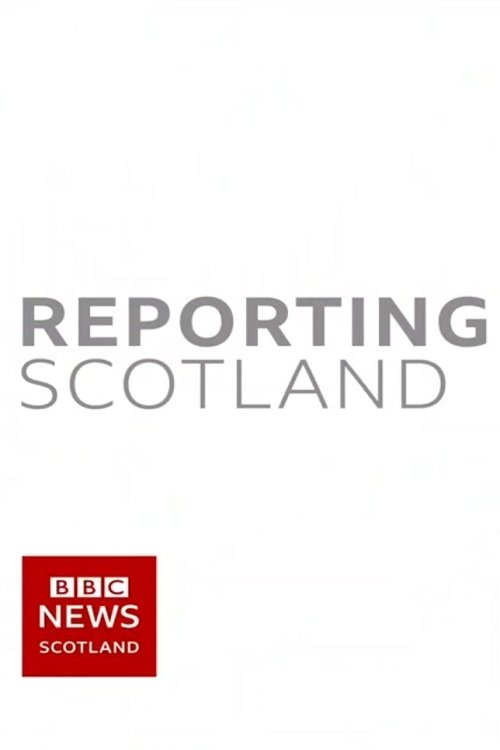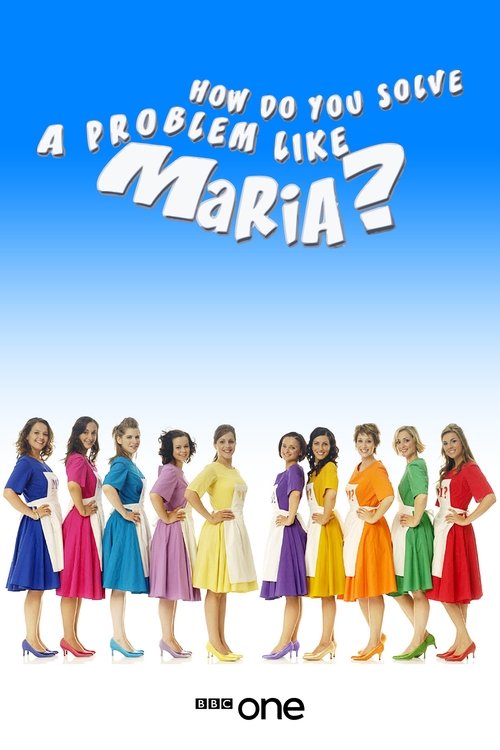

BBC One
Featured Show:
BBC News at One
The BBC News at One is the afternoon news bulletin from the BBC. Produced by BBC News, the programme is broadcast on BBC One and the BBC News channel every weekday at 1:00pm. The programme is usually presented by Sian Williams every Monday and Sophie Raworth from Tuesday to Friday. The BBC News at One achieved an average reach of 2.7 million viewers per bulletin in 2007, making it the most watched programme on UK daytime television.
BBC One TV Shows
2484 shows • Page 124 of 125
 0
0BBC News at One
The BBC News at One is the afternoon news bulletin from the BBC. Produced by BBC News, the programme is broadcast on BBC One and the BBC News channel every weekday at 1:00pm. The programme is usually presented by Sian Williams every Monday and Sophie Raworth from Tuesday to Friday. The BBC News at One achieved an average reach of 2.7 million viewers per bulletin in 2007, making it the most watched programme on UK daytime television.
 0
0Second Verdict
Second Verdict is a six-part BBC television series from 1976, of dramatised documentaries in which classic criminal cases and unsolved crimes from history were re-appraised by fictional police officers. In Second Verdict, Stratford Johns and Frank Windsor reprised for a final time their double-act as Detective Chief Superintendents Barlow and Watt, hugely popular with TV audiences from the long-running series Z-Cars, Softly, Softly and Barlow at Large. Second Verdict built on the formula of their 1973 series Jack the Ripper in which dramatised documentary was drawn together with a discussion between the two police officers which formed the narrative. Second Verdict also allowed for some location filming and, when the case being re-appraised was within living memory, interviews with real witnesses. The episodes were: ⁕"The Lindbergh Kidnapping" ⁕"Who Killed the Princes in the Tower?" ⁕"The French Bluebeard" ⁕"Murder on the 10.27" ⁕"Lizzie Borden" ⁕"Who Burned the Reichstag?". Although this was the last time Barlow and Watt would be seen together on British TV, the Watt character would make one final appearance, in the last episode of Z-Cars in September 1978.
 0
0Chock-A-Block
Chock-A-Block was a BBC children's television programme, first shown in 1981 and repeated through to 1989 and shown as part of the children's programme cycle See-Saw. "Chock-A-Block" was an extremely large yellow computer, modelled to resemble a mainframe of the time; it filled the entire studio and provided the entire backdrop for the show. The presenter of the show supposedly played the part of a technician maintaining the computer; there were two presenters, Fred Harris and Carol Leader, but only one appeared in each episode. At the start of the show, the presenter would drive around the studio towards the machine in a small yellow electric car, before saying the catchphrase "Chock-A-Bloke, checking in!". The presenter would then use the machine to find out about a particular topic. The name "chock-a-block" was supposedly derived from the machine's ability to read data from "blocks" - which were just that, physical blocks painted different colours. A typical show would include dialogue from the presenter, a brief clip played on Chock-a-block's video screen, and the presenter recording a song on Chock-a-block's audio recorder.
 0
0BBC News at Six
The BBC News at Six is the evening news programme broadcast each night on British television channel BBC One and the BBC News channel at 18:00. For a long period the News at Six was the most watched news programme in the UK but since 2006 it has been over taken by the BBC News at Ten. On average it pulls in 4 million viewers. George Alagiah is currently the main presenter, presenting Monday to Thursday, while Fiona Bruce is its Friday presenter. Other BBC News presenters, including Sophie Raworth, Mishal Husain and Sian Williams also appear. In late 2007 the length of the programme was shortened from 30 minutes to 28 minutes to allow for a news summary being shown on BBC One at 7:58pm.
 0
0Pinwright's Progress
Pinwright's Progress was a British sitcom that aired on the BBC Television Service from 1946 to 1947 and was the world's first regular half-hour televised sitcom. The ten episodes, which aired fortnightly in alternation with Kaleidoscope, were broadcast live from the BBC studios at Alexandra Palace. Still photographs are all that remain of the show's transmitted form. Pinwright's Progress was written by Rodney Hobson, produced and directed by John Glyn-Jones and the script editor was Ted Kavanagh, who also wrote the BBC radio comedy series It's That Man Again.

Sweet Sixteen
Sweet Sixteen is a British sitcom that aired on BBC1 in 1983. It stars Penelope Keith and was written by Douglas Watkinson and directed and produced by Gareth Gwenlan.

Multi-Coloured Swap Shop
Multi-Coloured Swap Shop, more commonly known simply as Swap Shop, was a UK children's television programme. It was broadcast on Saturday mornings on BBC1 for 146 episodes in six series between 1976 and 1982. It was ground-breaking in many ways: by being live, sometimes up to three hours in length, and using the phone-in format extensively for the first time on TV. Its creation was thought by many to be the BBC's response to the growing success of ITV's Tiswas - although at the time the latter was only broadcast in the ATV region in the Midlands and had yet to be taken up by other ITV franchises around the country.
 0
0Should I Worry About...?
Should I Worry About...? was a British documentary series that aired on BBC One from 9 September 2004 to 18 August 2005. It was presented by Richard Hammond, where he looked at the science behind headline health scares. The series has been repeated on Dave.
 0
0Phillip's Wish
Phillip's Wish is a television programme aimed at children, broadcast on the BBC, produced for BBC Kids World & The Britt Allcroft Company by Hibbert Ralph Entertainment.

Saturday Superstore
Saturday Superstore was a children's television series, broadcast on BBC1 from 1982 until 1987. It was shown on Saturday mornings with presenters including Mike Read, Sarah Greene, Keith Chegwin and John Craven. The show was very similar to its predecessor Multi-Coloured Swap Shop. A regular spot on the show was their children's talent show "Search for a Superstar". The winner of the 1986 search were Claire and Friends spawning the top twenty hit "It's 'orrible being in love". In 1987, the contest was won by Juvenile Jazz, which included future OMD and occasional Stone Roses keyboard player, Nigel Ipinson. Amongst its most memorable moments were the pop group Matt Bianco being verbally abused by a phone-in caller and The Flying Pickets offering as a competition prize a tea-towel bearing the face of Karl Marx. Other notable guests included Wham!, who answered questions about their lives to callers and read out competition answers and winners. The presenters released a single entitled "Two Left Feet", though it failed to chart. The theme tune, entitled "Down At The Superstore", was also released by The Assistants, consisting of Dave Edmunds, B. A. Robertson, Cheryl Baker, Junior and Suzi Quatro.
 0
0Reporting Scotland
BBC Scotland's national television news programme, the only Scottish national news programme in the English language on air.
 0
0By the Sea
By the Sea, is a 1982 BBC film starring The Two Ronnies, and written by Ronnie Barker under the pseudonyms "Dave Huggett and Larry Keith". The film followed the extended family of "The General", played by Barker, as they went on an eventful seaside holiday. It was set on the Dorset coast in "Tiddly Cove", actually the coast between Bournemouth and Swanage. Ronnie Barker was a keen collector of saucy seaside postcards, and published several books of them. The humour of By the Sea was very much based on the colourful style of these.

Why Don't You?
Why Don't You? or Why Don't You Just Switch Off Your Television Set and Go and Do Something Less Boring Instead? was a BBC children's television series broadcast in 42 series between 20 August 1973 and 21 April 1995. It usually went out on weekday mornings during the Christmas and Easter school holidays, although some early series in the 1970s were broadcast on Saturday mornings. The format consisted of groups or "gangs" of children responding to letters from viewers who wrote into the show suggesting games, 'makes' and days out. Typically these were arts-and-crafts activities involving cutting up paper, or games and magic tricks children could learn to impress their friends. Created by producer/director Patrick Dowling at the BBC's Bristol studios, Russell T Davies was later at one time a producer and director for Why Don't You...? before going on to greater fame as writer of Queer as Folk and producer of the 2005 revival of Doctor Who. Under Davies's direction, the format of the series shifted from magazine show to drama, with plots frequently centring around harebrained young Welsh presenter Ben Slade and his increasingly elaborate inventions. Slade was one of the longest serving presenters in the show's 22 year run.
 0
0Bitsa
Bitsa was a British television programme broadcast from 1991 to 1996 on BBC 1. It involved creative arts and "makes" very much like later show SMart. It was repeated for a time on the now defunct digital channel BBC Choice. The show featured two presenters who would create craft projects from household junk and craft materials. Sometimes the items created were quite complex and advanced, but were always presented with instructions for viewers to follow. The show also featured a 'challenge' section, in which school children would shout three numbers corresponding to a selection of numbered boxes, each containing a different material, for example cardboard tubes, sticks or fabric. The presenters would then have three minutes to create something using only these materials. Much fervent use of a glue gun often ensued. The theme tune for Bitsa was written by Peter Charlton and the original musical arrangement was by Bill Le Sage, but after the first series the tune was reworked by Mark Reader from the rock band Strider. Reader also wrote the music for the 3-minute challenge and composed all the rest of the music for the show. Other items featured on the show included clips of children presenting craft projects they had made themselves, and footage of the presenters travelling around the country in their van visiting local schools. There was also a robotic puppet named 'Hands' who would quickly make a small item, often mechanical in nature, from small items such as pieces of card, elastic bands or matchboxes, who would hum as he worked, then present the completed item with a flourish.
 0
0That's Genius!
That's Genius! was a BBC children's television series originally shown on BBC One between 12 November 2003 and 17 December 2003. The program ran for one series. Earlier in 2003 CBBC announced a competition for children to send in their ideas for inventions. The competition attracted nearly 3000 entries of which a panel of judges chose the top five. These five inventions were then made into prototypes by experts. On 17 December 2003 viewers were invited to vote for their favourite invention and then the winner was announced live on BBC One. The winner won a behind the scenes tour at the Epcot Center. The show was presented by Angellica Bell, Kursty Groves and Steve Wilson.
 0
0BBC Nine O'Clock News
The BBC Nine O'Clock News was the flagship BBC News programme. It was launched on 14 September 1970 and ran until 15 October 2000, when it was controversially replaced by the BBC Ten O'Clock News.

Me Mammy
Me Mammy is a British sitcom that aired on BBC1 from 1968 to 1971. Starring Milo O'Shea, it was written by Hugh Leonard.

Come Dancing
Come Dancing was a BBC TV ballroom dancing competition show that ran on and off from 1949 to 1998, becoming one of television's longest-running shows. The show was created by Eric Morley, the founder of Miss World, and began in 1949 by broadcasting from regional ballroom studios, with professional dancers Syd Perkin and Edna Duffield on hand to offer teaching. In 1953 the format changed to become a competition, with later series seeing regions of the United Kingdom going head to head for the coveted trophy. The many presenters over the years included Peter West, McDonald Hobley, Charles Nove, Terry Wogan, Brian Johnston, Angela Rippon, Michael Aspel, Noel Edmonds, David Jacobs, Judith Chalmers, Pete Murray, and Rosemarie Ford. Commentators included Ray Moore and Bruce Hammal. In 2004, a re-launched celebrity version entitled Strictly Come Dancing, hosted by Bruce Forsyth and Tess Daly, debuted on BBC One, and became a popular hit on Saturday evenings. The format of the newer show has been successfully exported to other countries under the name Dancing with the Stars.
 0
0Newsround
Newsround is a BBC children's news programme, which has run continuously since 4 April 1972, and was one of the world's first television news magazines aimed specifically at children. Initially commissioned as a short series by BBC Children's Department, who held editorial control, its facilities are provided by BBC News. The programme is aimed at 6 to 16-year-olds.

How Do You Solve a Problem like Maria?
How Do You Solve a Problem Like Maria? is an English reality television talent show that documented the search for an undiscovered musical theatre performer to play the role of Maria von Trapp in the 2006 Andrew Lloyd Webber and David Ian stage production of The Sound of Music. The series was devised by executive producer Gigi Eligoloff, and was announced by the BBC in April 2006. BBC One broadcast the programme, which was hosted by Graham Norton, on Saturday evenings from 29 July through 16 September 2006. The title derives from the refrain of "Maria", a song from the first act of The Sound of Music.